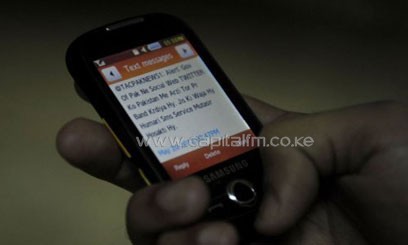
A mobile user/FILE
But there are two significant challenges in Africa, according to industry leaders and analysts at the world’s biggest mobile fair in Barcelona, Spain: lowering prices for handsets and services and boosting a patchy network.
The use of mobiles is exploding among the one billion people in Africa, where landline networks are poorly developed. Many people rely on the devices for financial transactions — Africa is a leader in the use of “mobile money” — or to link to the Internet.
“Africa is the last frontier of mobile telephony in the world,” said Manoj Kohli, chief executive of Indian group Barthi Airtel, which has a big presence in the continent.
“But it is tough to maintain a network,” he added.
According to global consultants PwC, the number of mobile telephone subscriptions in Africa exploded from 16 million in 2000 to 246 million in 2008 and more than 500 million now.
It expects there to be 600 million subscribers by 2016.
Many Africans have two SIM cards to profit from cheaper calls on each network, however, and industry analyst Wireless Intelligence estimates only a little over one third of the population actually had a mobile telephone in the second quarter of 2012.
Average revenue per consumer in Burundi, Rwanda or Egypt was about $5 (3.80 euros) a month, it said.
Price is a challenge for handset manufacturers, too.
Chinese manufacturer Huawei this month launched a sleek new smartphone adapted for Africa, the 4Afrika, running on Microsoft’s Windows Phone operating system and with a four-inch screen.
Adapted for each market, the Nigerian version has a dictionary for the local Yoruba language and local news, along with an application related to the popular low-budget movie industry, called Nollywood.
It is expected to sell for less than $200, a Microsoft executive said, with the first devices being offered as early as this month in Angola, Egypt, Ivory Coast, Kenya, Morocco, Nigeria and South Africa.



































